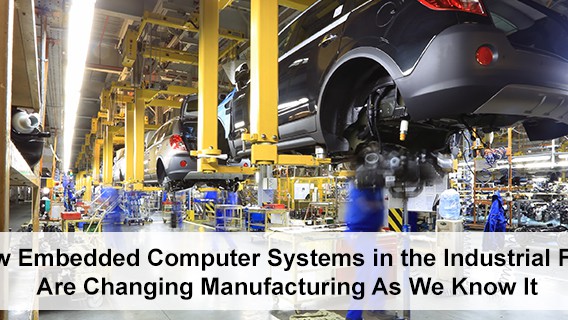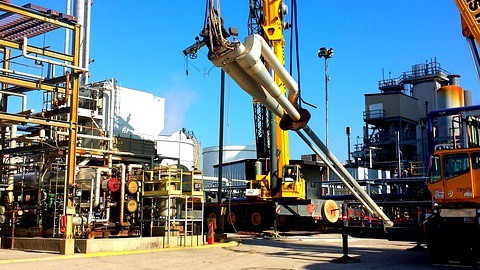Technology seems to be more of a slave to Murphy’s Law than any other human endeavor; if it can fail, it will.
One moment you’re knee-deep in a spreadsheet working on data, and the next you’re staring at a crashed screen, cursing your bad luck, and pondering how much one-way tickets to Puerto Vallarta cost. Well, we’re here to address what perhaps is not a matter of bad luck, but more of a mismatch between workload, environment, and computer hardware.
Here are four common reasons your computer might be failing:
Too Hot, Too Cold, but Never Just Right
Article Guide
Let’s face it, some work environments aren’t the friendliest to technology.
Heavy temperature fluctuations can take their toll on the hardware inside of a computer over time. If your workplace is a steel mill and operations are automated with a computer, it’s likely the innards of the computer will be taking quite a beating. Think of what the hardware might do if it gets hot, then cold, then hot again on a repeated cycle. Metal components expand and contract, causing connections to fail or short. Motherboards warp, chips overheat, glue melts, heat paste flakes off, etc. Now your operations are halted, processes turn from automatic to manual, and productivity has slowed down to a crawl. Frustration abounds! What then?
Industrial computers are manufactured to combat extreme temperature environments (brutally hot or icy-cold), machine shops, or factories where the temperature is known to fluctuate from high to low often. The secret is within the components—military grade components last longer because of the quality of the metals and impressively small tolerances on how the parts are machined, resulting in a higher MTBF (Mean Time Between Failure).
A high MBTF means a computer will last over five years, on average. Plus, the enclosures these industrial computers are housed within aren’t just for looks; they’re specifically designed to insulate components while they do their intended operations.
Where There’s a Fan, There’s a Failure
Computer fans are both a necessity and a curse. Yes, fans are necessary to keep components from frying their selves since they heat up quickly without cooldown assistance, but fans are also high-risk points of failure. If your computer is having hardware failure problems, it’s a good idea to have an IT professional to check the fans and see if they’ve stopped performing optimally.
Or, a better option to reduce computer failure frequency is to find a low power PC or industrial tablet that doesn’t need fans for optimal operation. A computer without fans works great for the office because it has zero dust intake and will last longer than a computer with multiple fans that will draw in copious amounts of dust over time. If you couple a fanless design with military grade components, it’s a twofer package that ensures your computer will last a long while. Lasting computers means higher productivity and less drain on the wallet.
Loose Chips Sink Ships
In the business environment, computers are commonly placed in on or underneath a desk without careful consideration of the capability of the computer and the optimal working environment for it.
An industrial PC tower placed on a desk could easily be knocked over by machinery, tools, or fast-moving workers. PCs under a table can be — and probably will be — kicked or jostled frequently. With a standard consumer PC, a few hard knocks is all it takes to fail completely. Chips get scratched, hard drives take platter damage, heat sinks become dislodged, and cable get pushed up against hot components they’re not meant to come in contact with.
Secondly, when it comes to industrial computer placement, the area under a desk or in a cabinet can be far too hot to function. Computers need to breathe, especially when they often operate under heavy load with near 24/7 computing uptime. More uptime means more heat, more heat means the CPU is working less efficiently, which causes it (and other components) to fail far earlier than they might with proper airflow.
If your computer requires constant uptime with superior airflow, the better idea for a computing solution is the rack mount PC.
You can easily install one of these computers in a server case where it will have permanent airflow and proper cable pathways for power, network accessibility, and peripheral connectivity. A rack mount PC provides better power management, superior cooling ability, a more organized storage space, and higher levels of protection—rest assured that stray soda bottles won’t be falling into this kind of computer if it’s secured tight inside of a server case.
In the rare case of a foreign substance or a sudden splash of water, there’s always…
The IP65 Rating—Keep Liquids Out!
One stray hand knocking over a glass of water can spell doom for any computer, especially those that aren’t armed against any protection from liquids. Or, even more dangerous, is the workplace or workstation that is constantly exposed to water or other liquids by the very nature of the job — cleaning, cutting with water jets, and bottling plants, or are simply placed in wet environments like swamps, beaches, near rivers, and the like. Tablets that see use in the field, like agriculture and military, are in particular danger from unexpected moisture.
That’s where an IP65 rating comes in. The Ingress Protection rating notifies you what the computer is resilient against. The “65” rating means the sealed bezel is dust-proof and resists direct sprays and splashes. Even if there’s a small accident with spilling water all over a sealed computer, it won’t be a problem – the “5” rating specifically allows for contact with even direct jets of water hitting the device.
The IP rating protects the computer so a quick wipe down should suffice without any emergency computer repair. Worry less about the protection of the computer and focus on your daily tasks so technology doesn’t get in the way of productivity.
The Right Tool for the Job
Whatever kind of computer you choose, whether a rack mount PC or an industrial tablet, protect your investment and your productivity with the right hardware.
Contact Cybernet to learn more about industrial computers, rack-mounted PCs, and industrial tablets, and how to deploy them for maximum effectiveness.
How Embedded Computer Systems in the Industrial Field Are Changing Manufacturing As We Know It
July 7, 2016
Though you may not realize it, embedded computer systems exist in many facets of our everyday lives and work. An embedded computer system is any special-purpose system that is fully enclosed. Whereas a general computer…
0 Comments4 Minutes
Industrial Computer Selection Criteria for the Oil and Gas Industry
March 10, 2016
Technological advancements have led us to areas we have never had access to before, such as horizontal drilling in the Bakken region. Conventional drilling techniques have only been able to extract a fraction of the…
0 Comments7 Minutes
Common Problems in the Warehouse Solvable by Industrial Tablets
January 24, 2018
Your warehouse isn't just a place to store inventory—it's a central hub for your product, and if it isn't managed properly that could sacrifice time, money, customer retention, and ultimately your business. Here are a…
0 Comments6 Minutes
You Can't
Learn from a Pop-up
But we can deliver knowledge to your inbox!
We dive deep in the industry looking for new trends, technology, news, and updates. We're happy to share them with you.
Knowledge, News, and Industry Updates Right in Your Inbox





